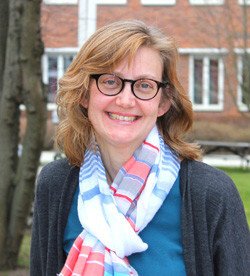About Maria Johansson Project
About the research in Maria Johanssons Project at the Department of Microbiology, Tumor and Cell Biology.

Our work aims at developing and using mouse models where antileukemic reactivity can be improved by employing natural killer (NK) cells. NK cells are lymphocytes in the innate immune system and their activity is regulated by activating and inhibitory receptors. We study well characterized inhibitory receptors for self MHC class I on NK cells. By blocking these receptors, one can induce NK cell rejection of leukemia cells in mice. We found that this anti-tumor reactivity can be potentiated by exogenous IL-2.
In addition, we investigated the risk of breaking NK cell tolerance to normal cells by such treatment, and found no signs of autoreactivity (Vahlne G. et al submitted for publication). The presence of NK cell activating ligands on normal hematopoietic cells suggest that also such cells should be killed during inhibitory receptor blockade. We are now further investigating the basis for the robust self-tolerance during treatment. We are also developing mouse models for utilization of NK cells in hematopoietic stem cell (HSC) transplantation. In closely related projects we are investigating if blockade of inhibitory NK cell receptors could induce beneficial reactivity against virus infected cells by mouse as well as by human NK cells
Sensitive and accurate assays are a cornerstone of experimental research. We are developing single cell assays for cellular effector functions. We have adapted to the mouse NK cell system, a method for measuring exocytosis of secretory lysosomes (degranulation) utilizing cell surface detection of the marker CD107a (Vahlne G. et al, 2008). By the use of multicolor flow cytometry, this analysis can be combined with analysis of other functions such as cytokine production as well as with phenotypic analysis.
